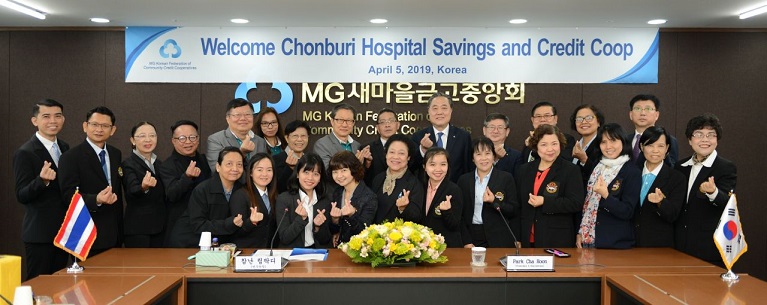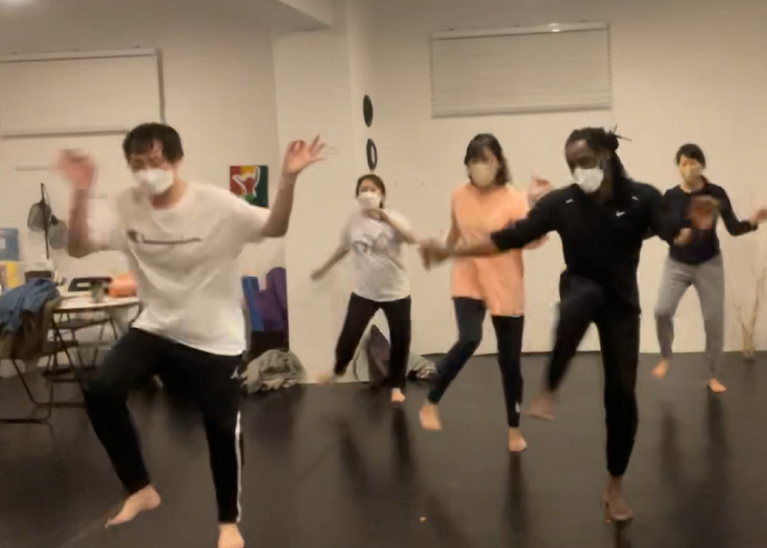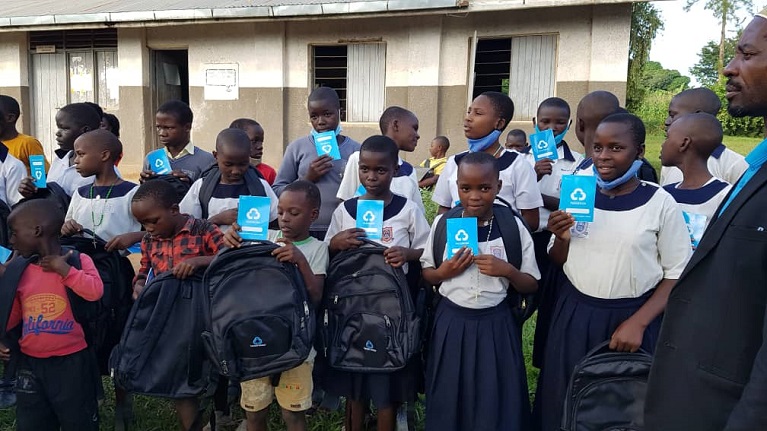Spotlight Interviews with Co-operators
Sung Ho Kim, International Cooperation Department, KFCC
“Spotlight Interviews with Co-operators” is a series of interviews with cooperative and wider social and solidarity economy (SSE) policy makers, researchers and practitioners from around the world with whom ILO officials have crossed paths during the course of their work. On this occasion, the ILO interviewed Sung Ho Kim from the International Cooperation Department at KFCC.
Could you tell us about your background and how you got involved in working with cooperatives?

Even when I was in elementary school, there was a ‘Savings Day’ every month. My friends and I read Aesop's fable, 'The Ant and the Grasshopper', and learned that it is essential to save money for bad days.
A Saemaul Geumgo staff came to the school and made savings passbooks for the students and on Savings Day, my mother always put KRW 10,000 ($10) into my hand. On the day of graduation, I found that there was much more money with interest accrued in my Saemaul Geumgo account. The feeling of savings was happiness, and it seems that my mother nurtured economic ideas and habits in me.
It was 15 years afterwards that I joined the KFCC, which guides and supervises Saemaul Geumgo. Maybe because I had been saving money in Saemaul Geumgo since I was a child, my first job was not awkward at all. In a way, it's like it was scheduled from the time I opened my first passbook at Saemaul Geumgo.
My first role was to work at the inspection team, making use of my degrees in economics and accounting. It was to conduct regular inspections and provide consulting advice to prevent accidents that may occur at Saemaul Geumgo and promote transparent and sound development.



Could you tell us about KFCC? (its origins, its members, its goals, activities, partnerships, collaborations)
Saemaul Geumgo is a community-based financial cooperative model that started in 1963 as part of the efforts to rebuild the nation in the aftermath of the Korean War. It is based on the ancient practices mutual help found in Korean villages. It started in the capital, with Koreans gathering by tying their belts together. It has now grown into Korea's representative financial cooperative for low-income people. Currently, close to 31 thousand employees are working in almost one thousand three hundred Saemaul Geumgos with more than three thousand branches. It serves 21 million customers, with 4 out of 10 Koreans engaged in Saemaul Geumgo.
Could you tell us about your engagement with EACB and your work with cooperative development in Africa?

In recent years we introduced the savings-based Saemaul Geumgo model in Uganda. Since 2017, the KFCC, together with the Ministry of the Interior and Safety, has implemented capacity-building programs for public officials and village leaders.. In May 2021, Saemaul Geumgo obtained a permanent registration from the Uganda government. As of the end of September 2021, Uganda Saemaul Geumgo, which started as a local financial institution with 30 members, has over 6,000 village members in a total of 15 offices, contributing to solving the problem of financial exclusion in rural areas.
How have financial cooperatives dealt with the COVID19 global pandemic and its impact in Korea? (new services, tools, etc.)

What are the key challenges that the Korean financial cooperatives need to address to be better prepared for future crises and to build resilience?
I can answer with both external and internal tasks. Externally, Korean financial cooperatives play a limited role in the implementation of policy financing. Although it is represented as a model close to local community, it is operated in a policy environment where relationship banking is difficult to form. At the government level, it needs support to establish a lasting relationship with local small business owners and self-employed people through the execution of policy financing centered on the Apex organization (Federation), to establish itself as a central axis of relationship banking.Internally, financial cooperatives are losing their initial purpose compared to the past. We must prove the value of cooperatives in a way that differentiates ourselves from profit-maximizing commercial banks that are not membership based. It is necessary to restore trust by focusing on local activities such as strengthening cooperation with members, local residents, and local governments.
What do you see as emerging sectors and opportunities for cooperatives and the wider social and solidarity economy in Korea in building back better?
With the prolonged COVID-19 situation, various social problems have emerged. Crisis has come from every corner of our daily lives, such as care deficits, social isolation and environmental challenges. As the global pandemic and the climate crisis show us there is a need for a major transformation in the economy and society. With the rise of inclusive growth that values quality of life, the role of the social economy is becoming more important in local communities.The social economy is an alternative that can heal various ills and innovate society through the values of solidarity, sharing, and win-win cooperation. By providing social services by utilizing the niche market of the local community, which is not covered by the market and the public, the social economy is revitalizing our business and taking the lead in business innovation for sustainable growth. When social economy organizations provide integrated services through solidarity and cooperation, it is expected that various service needs in the region will be satisfied.